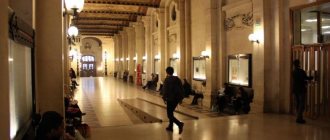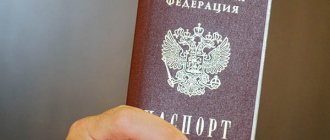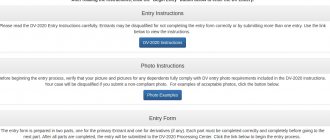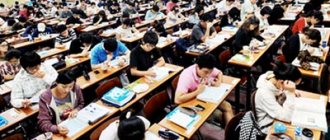Studying in the USA gives schoolchildren and students enormous opportunities. Getting to know a new country, immersing yourself in the language environment and culture helps to significantly expand your horizons. Perhaps you think that only rich people can afford to send their child to study abroad. The clear answer is no.
DISTANCE TEACHING ENGLISH via Skype for high school students and adults
AFS program
This program includes 56 countries, including Russia. AFS is designed for 15-18 year olds. Schoolchildren are placed in ordinary American families, for the duration of their stay they are conditionally a member of it and go to the nearest school. All program participants are volunteers, including families hosting children; they are not paid anything for this.
If you decide to send your child to the USA, do not worry that you will have to host an American schoolchild at home. Cultural exchange occurs between countries, rather than families exchanging children. When participating in the project, a child cannot live with relatives only in the family designated for him.
The host family is obliged to provide the child with comfortable accommodation. If there is a child of a different gender in the family, provide a separate bedroom. It is possible to live together with a same-sex person. In addition, the receiving party must provide the child with adequate nutrition. If possible, the wishes of the participant are taken into account.
Price
There is no fee for participation; children are selected on a competitive basis. But it will not be possible to completely avoid costs. You need to buy tickets, pay for insurance, apply for a visa - all this costs money. Sponsorship support will help a lot, scholarships and grants are provided, but parents should not stand aside.
How to get involved
There are several opportunities for schoolchildren to participate:
- Take part in a competition. It is held annually from June 15 to October 15. You can apply on the official AFS website.
- Sponsoring companies annually hold scholarship competitions among the children of their employees.
- Those whose parents are willing to bear the costs or find sponsors themselves can also take part in the competition. For children from the outback, there is an opportunity to undergo an interview via Skype.
Anyone wishing to travel to the USA must additionally pass an English language test, otherwise participation is impossible.
Terms of the exchange program with US schools
During the academic semester (5 months) or year (10 months), high school students study in US public schools and live with American families. Host schools and families are located throughout the United States except Alaska and Hawaii.
According to the terms of the program, you cannot select a specific school or family, but when selecting a school, the preferences of students by region or state can be taken into account if you use.
The advantages of the exchange program are deep immersion in the language environment, training in English, acquaintance with the culture, everyday life and the education system of the United States. And, of course, the experience of living on another continent is absolutely unique for most Russian teenagers.
Children study in a day school, and therefore they need to be even more independent than students in boarding schools: manage their time, quickly get used to new teaching methods, cope with homework in English, participate in family life by performing simple household chores, Don't forget to take lunch to school and don't be late for the school bus.
— Daria Kolyaskina
Commercial offers
The only difference between commercial offers is that all expenses are borne by the student’s parents. Nowadays, many companies offer to participate in the student exchange program for a fee. Candidates will also have to pass an English test. The number of places is also limited, but due to the fact that there are many more commercial places, it will be much easier to pass the selection.
For one academic year in the USA you will have to pay about $7,000. This includes:
- family accommodation;
- nutrition;
- entertainment expenses;
- health insurance policy.
The application for an American visa and the purchase of tickets are paid separately. Parents are advised to provide their children with pocket money.
Selecting an educational institution and studying in American exchange schools
Secondary education in the USA lasts 12 years. American students spend 4 years in high school, from grades 9 to 12 (ages 14-18). Compulsory subjects in US high schools usually include:
- English language,
- mathematics,
- introduction to science (general science),
- health and physical development,
- social sciences (possible options: US history, geography, world history, social studies).
Students choose other subjects based on their interests and depending on what they plan to do after leaving school.
In order to smoothly integrate into the American educational system, each participant in the exchange program from Russia fills out a form indicating their academic, extracurricular interests and subjects that they would like to study in America. This information, as well as test results, are taken into account during selection.
The curriculum corresponds to the current level of the student: if he has achieved serious success in a certain discipline, he will be able to study it together with the senior class, and take other subjects in his main parallel.
Host schools can supplement the main program with extracurricular activities, clubs and sports sections - the availability and specific list depends on the educational institution.
Documents on the results of Russian exchange children studying at a US high school
Participants in the exchange program can partially or fully credit the courses taken in America and the grades received at their school in Russia. Based on the results of studying in the USA, the student will receive a transcript indicating the subjects, academic hours and grades (transcript), which will be submitted to the Russian school.
Russian 11th grade students after a year of study in this exchange program will not receive a diploma from an American school - like other participants in the program, they will only have a transcript. Find out how to become a US high school diploma holder from EduTravel specialists. Inquire about admission to public or private schools that are authorized to issue diplomas to foreigners.
— Daria Kolyaskina
Location of schools and accommodation, safety
Most schools are located in small towns, only a few are located in prosperous suburbs of megacities, for example, New York, Los Angeles, Philadelphia, Boston. Participants in the exchange program live in carefully selected host families as a family member, completely sharing a common life, which also includes some household responsibilities.
The program is managed by the US State Department and implemented by American and international organizations in the field of cultural and educational exchange, including the International Student Exchange (ISE). An important part of ISE's work is the selection of schools and families, control and monitoring of the conditions of stay of foreigners in order to provide students and hosts with a safe, positive and productive intercultural communication experience. ISE, as the host organization, sponsors the American visa.
Throughout their stay in the United States, Russian schoolchildren receive the support of ISE consultants on issues related to adaptation, training and accommodation.
Educational agency EduTravel is an official partner of ISE.
UGRAD
Only students with outstanding abilities and good knowledge of the English language can study in the USA for a period of one semester. Applications from third-year students of a four-year bachelor's degree and fourth-year students of a five-year program are accepted for consideration. The participant cannot choose an American university; sponsors themselves select an educational institution suitable for their specialty. The US government pays all costs in full:
- covers the cost of round-trip air tickets;
- pays tuition and living fees;
- provides consultation before departure.
You just have to apply for a passport yourself.
Selection criteria
- The student must have good grades in all subjects.
- Be an active participant in the scientific or social life of the university.
- Good command of English, both written and spoken.
- Successfully pass the TOEFL.
- A semester in the states cannot be the last semester of a student’s studies.
Documents for registration
If the list of documents is incorrect or incomplete when submitting an application, the applicant will be disqualified.
- An online application completed on the official website of the program.
- Two letters of recommendation in English. One - from any teacher, the other - from a supervisor or organizer of extracurricular activities.
- A copy of the international passport.
Applications are accepted until January 1, winners are notified in May and preparations for a future trip begin.
Features of the FLEX program
This program is not valid for Russia in 2021.
FLEX is a non-profit exchange program relevant for children in high school. In the CIS countries, the competition has been held every year since 1992. Participants in this program have a unique opportunity to study as an exchange student in the United States for free. Validity period: academic year.
The participant has the opportunity to live with a host family. It is noteworthy that American schoolchildren do not come to the Russian family while he studies abroad.
Having come to the United States for a year as an exchange student, a Russian can also take an active part in the social life of American society. This allows young people to better understand the culture of the American people. FLEX involves studying the history, traditions and even cuisine of the people living in this country.
What criteria exist?
A high school student participating in an exchange program must meet the following criteria in 2021:
- study in grades 8-10 of secondary school;
- be an excellent student or a striker;
- speak good English;
- meet all visa requirements;
- meet age criteria.
Everyone who wishes to become a participant in the program undertakes to provide all the necessary certificates from a medical institution stating that the student’s health condition allows him to go to study in the United States.
The selection process for training ends in March of each year. By April, all students who apply for the program will receive up-to-date information regarding their status.
Features of competitive selection
Anyone who wishes to become a FLEX participant must go through three stages of competitive selection. In the first stage, potential participants answer questions in a fifteen-minute test. This test allows you to clarify how well the children speak the official language of the country of entry. The state language knowledge test includes ten vocabulary and six text questions.
The second stage is somewhat more difficult than the first. The US official language test takes more than 120 minutes. After this, Russian schoolchildren write 3 essays in the state language.
At the third stage of the competition, an interview with a potential participant is conducted. The interview is conducted in both English and Russian. Also, participants in the third round are required to submit 2 essays. The last stage of the third round is filling out the participant questionnaire.
Main advantages of the program
Many Russian high school students dream of becoming participants in an American exchange program. Returning home, the Russian demonstrates excellent knowledge of the English language. This allows him to enter even the most prestigious Russian university and successfully build a career in his chosen field.
Also, students who successfully complete their studies in the USA always have a chance to enter any American or European university. To be admitted, a Russian must submit an application for a grant. The second stage is passing an international test (TOEFL or IELTS). After this, the Russian can submit documents to the chosen university.
Career Training USA
Designed for students wishing to do an internship in the USA. It differs from Work and Travel in that the work is provided according to the training profile. The period can be from 2 months to one and a half years, chosen at will. To take part, you need more serious preparation:
- the student must have already studied for at least 2 years in his field of study;
- the program is designed primarily for senior students;
- you will have to pass an international language exam - TOEFL;
- undergo testing by the intermediary company;
- provide a resume in English;
- It is advisable, but not necessary, to obtain letters of recommendation from your place of study, and if you work, from your place of work;
- prepare documents: student card, record book, certificate stating that you are a student, 4 color photographs 3x4 cm, passport of a citizen of the Russian Federation and a foreign passport.
Internship options
There are only 2 options:
- Independently search for a company for an internship. It will cost much less - $700–1500 depending on the period, but you will have to work harder. The company must approve the applicant's candidacy and independently developed internship plan. The plan includes the following points: goal, planned acquisition of skills, step-by-step work plan, justification for choosing this particular option, description of methods of monitoring and guiding the trainee.
- Selecting an internship from the proposed partner companies. The applicant will only have to undergo a telephone interview and fill out a ready-made plan. Payment for participation is from 2 to 3 thousand dollars.
Education under the College and University Student Program system
This program is designed to attract new personnel from other countries. This method can be used by students who want to continue their studies at an American university, and young professionals who prefer to undergo an internship in the USA. Citizens of countries participating in the relevant programs can apply. The period is 1-2 years.
This is a great opportunity to compare the educational systems of 2 countries and get an academic degree from the best institution in the world. Students are permitted to work part-time in accordance with local laws and program rules. Registration takes place at the country's consulate or relevant agency.
Au Pair in America
The difference between this student exchange program is that there is no specific departure time, and only girls can take part . The participant is placed in a family where she plays the role of nanny or governess.
In exchange, her host family pays for her tuition at a local college, and she receives an additional scholarship of about $200 a week.
The terms of participation:
- applications from full-time undergraduate and graduate students are considered;
- age 18–28 years;
- Only unmarried and childless girls are allowed;
- experience working with children over the past 3 years must exceed 200 hours;
- Recommendations from previous employers from places where you worked with children will be a good bonus;
- health certificate;
- a police certificate confirming no criminal record;
- having a driver's license;
- good knowledge of the language.
At the office of the partner company, you need to fill out a form in English. Describe yourself and your strengths, an approximate portrait of the host family. The questionnaire will be sent to families for consideration. Try to stand out and appeal to potential sponsors. The program lasts 12 months, after which you are allowed to stay in the country for another month for tourism purposes.
The total cost of registration is about $1,500, this amount will pay off after just 2 months of stay in the country.
Internship within the Intern Program
Students can take advantage of the program provided after receiving their diploma to gain the necessary experience at a US institution. This is a great chance to enrich your knowledge about the culture and life of local residents.
The main criteria for participation in the program are:
- The age of the participant must be from 20 to 32 years;
- knowledge of English at the highest level;
- You must have at least 2 years of experience in your specialty;
- Students in their 3rd or 4th year of study can use the program;
- graduated at least a year ago;
- The program can be used by a specialist with at least 2 years of work experience and without undergoing training at a university.
Documents and permission to participate in the program can be obtained from the US Consulate.
What does participation give?
An entire year of living in a foreign country cannot pass without leaving a trace; during this time many changes occur:
- The most obvious change is superior language acquisition. It is simply impossible not to learn something during a whole year of immersion.
- Parents often note that during this time the child matures a lot, becomes more independent and shows more initiative.
- It is important for children to temporarily abstract themselves from the family and its views on life; this allows them to expand the boundaries of thinking and independently assess their future.
- Many program participants choose to study abroad in the future; they are no longer afraid of possible difficulties.
Nowadays there are many opportunities for young people to temporarily study abroad. The main role here is played by talent and deep knowledge, and not by the parents’ wallet. Be bold and boldly move forward towards your goals.
To summarize: the main thing about the exchange program in US schools
- For whom: Russian schoolchildren aged 14.5-18 with an English level of at least Intermediate, an average score of at least 3.7-4 and developed social skills. Testing in English and school subjects will be required.
- Where: Public schools and host families throughout the United States except Alaska and Hawaii, without selecting a specific school or city. Taking into account preferences by region or state is available for an additional fee.
- How long: an academic semester or a year without the opportunity to obtain a diploma from an American school. How to get an American document on secondary education - check with your EduTravel curator.
- What is included in the program: basic subjects and electives, sports, extracurricular activities - the selection depends on the school. Training in English, without an adaptation course in English for foreigners. If a child needs such a course, we recommend going to a foreign language camp with intensive programs - the curator will tell you the details.
- When: submit your application for September 2021 by April 1, 2021, and January 2022 by October 1, 2021.
Contact your supervisor - Daria Kolyaskina +7, ext. 174 [email protected]
video
Study in the USA on a budget
The main question for those who decide to educate their child abroad is: how much will it cost? And parents do not always know that in the United States there are several government programs that allow them to educate and support smart and promising high school students from other countries for free. The countries of the former Soviet Union have been involved in this process for more than twenty years. In 2014, the Russian authorities, after deteriorating relations with America, unilaterally refused to participate in the FLEX (Future Leaders Exchange) program, which is completely free for parents, while schoolchildren from Belarus, Kazakhstan, Turkmenistan, and Moldova from poor families still have a chance study for an entire academic year in the USA.
Ambitious but poor Russian schoolchildren are now left with only partially free programs, where parents must pay associated costs that run into the tens of thousands of dollars. And a year later, a self-confident, organized and purposeful teenager returns home, who speaks fluent English, has acquired American “relatives” and friends - and at the same time has also begun to value his family of origin more.
Host families
The conditions of the program are such that it is not known in advance where in the United States the child will be assigned. It depends on where the most suitable host family is found for him.
Families are always carefully selected. These are families with small children; with children the same age as our participants; “young pensioners” whose children have recently grown up and left their parents; Grandmothers and grandfathers; as well as single moms and dads.
Most often, they live in small towns where everyone knows each other, and, as a rule, they do not even have the habit of locking cars and houses. Families participate in the exchange on a voluntary basis, meaning they do not receive money for placing a child.
Why do they need this? First of all, because the American mentality is not dependent: people do not expect benefits from the state, they do not expect other people to do something for them. They live with the idea of how they themselves can be useful to other people and society. They may also be interested in learning more about the country from which they are inviting a child.
In addition, by engaging in socially useful activities, such as hosting foreign students, they inevitably raise their status in the local community and engage in communication with other host families and their students from different countries.
Under the terms of the program, participants can be placed in separate rooms or in rooms with same-sex host siblings if there is a separate bed and enough space for studying. Children eat with their host family. School lunches ($2-3) are paid for out of pocket money, which parents must send monthly - in the amount of $250.
Typical American school. This, by the way, was completed by Bill Clinton
Global UGRAD Program
Global UGRAD offers a one-semester scholarship to outstanding undergraduate students from around the world. During this semester, students can study and engage in community service, professional development and cultural enrichment in the United States.
Students from all undergraduate programs are welcome to apply.
Race, color, gender, religion, disability are not taken into account when making decisions. Applicants are selected based on academic achievement, leadership potential, and readiness to study in the United States.
Program requirements
- the student must be 18 years old;
- Applications are accepted from citizens of the following countries: Algeria, Albania, Armenia, Azerbaijan , Bahrain, Bangladesh, Belarus , Bosnia and Herzegovina, Myanmar, Cambodia, China, Costa Rica, Dominican Republic, Egypt, El Salvador, Georgia , Guatemala, Honduras, India, Indonesia, Israel, Jordan, Kazakhstan , Kenya, Kosovo, Kuwait, Kyrgyzstan , Laos, Lebanon, Macedonia, Malawi, Malaysia, Maldives, Mauritania, Moldova, Mongolia Morocco Mozambique , Nepal, Nicaragua, Oman, Palestinian Territories, Panama , Paraguay, Philippines, Russia , Saudi Arabia, Serbia, South Korea, Sri Lanka, Tajikistan , Thailand, Turkmenistan , Ukraine, Uzbekistan , Venezuela, Vietnam and Zimbabwe.
- candidates must have completed secondary education in their home country;
- Good command of English required;
- start studying in the USA in August 2021 or January 2021;
- opportunity to obtain a J-1 visa;
- have a doctor’s permission to participate in the program;
- return to your home country upon completion of the program.
Purpose of the program
- Promote mutual understanding between residents of the United States and other countries.
- To ensure the exchange of academic, cultural and administrative experiences between students from UGRAD countries.
- Enhance the academic knowledge and professional skills needed to achieve academic and career goals.
- Comprehensive understanding and interaction with US students.
- Provide opportunities for students to connect with institutions and society in the United States.
- Motivate students to take an active role in local and global societies.
How student exchange programs work
In the modern world, the mobility of schoolchildren and students is considered as a necessary component of the educational process. Nothing can activate cognitive abilities, bring new experiences, expand one’s worldview, motivate to study other cultures, foreign languages and much more than direct complete immersion in a different environment, staying in another country, living and communicating with peers.
In Russia, there are several options for how school and university students can go to Germany for exchange studies:
- receive an invitation from an educational institution (for this you need to contact the relevant university or school in person);
- within the framework of interuniversity/school student exchange programs, having passed an open competitive selection;
- receive a grant under the international academic mobility program;
- take part in the annual competition of the Russian Ministry of Education and Science within the framework of the intergovernmental agreement between Germany and the Russian Federation.
Naturally, exchange programs for students and schoolchildren have big differences that should be taken into account.
Studying in Germany for schoolchildren: features of exchanges
The German-Russian student exchange has become quite widespread in both countries. Most often, schoolchildren in Germany choose gymnasium - schools that prepare for entering universities, and realschule - schools with in-depth study of the exact sciences.
The age of children to participate in the program is from 14 to 17 years. Schoolchildren have the opportunity to choose a host family to live with - a large family living in a big or small city or village.
The duration of training can vary from two to three months to an academic year. Study programs include compulsory subjects (mathematics, German and history) and additional subjects of the student’s choice.
Required conditions for participation are good school performance and passing a German language test. For high school students, level B2 is required, for juniors - participants in language schools - level A1/A2.
It is necessary to take into account possible difficulties that may arise for schoolchildren who participated in the exchange during the academic year: differences in school programs, delays in passing the Unified State Exam, failure to pass subjects, differences in the style and standard of living of the host family and the child’s family, negative impacts.
You can find out more nuances in our article “School education in Germany.”
Exchange studies in Germany for university students
Students of higher educational institutions of the Russian Federation have great opportunities to go to study in Germany under one of the exchange programs. Competitions for participation in such programs take place annually; applications from foreign students usually take place from October to February.
Exchange trips are usually short-term and last one to two semesters. Students can use:
exchange program with a partner university. Many Russian universities have bilateral student exchange agreements with German universities. In addition, universities from the Russian Federation that are members of the Erasmus + Charter as partners have the opportunity to enter into agreements with universities participating in the program from Germany and take part in a special short-term exchange program for undergraduate and graduate students - Credit Mobility.
According to the provisions of this program, Russian students and graduate students receive the right to study at universities in Germany for a period of three to twelve months with subsequent recognition of credit units. Program participants are paid all expenses related to transport, visas, and accommodation;
German foundations and student exchange programs (DAAD, Konrad-Adenauer-Stiftung and others). Thus, the Copernicus Stipendium scholarship program gives students from Eastern Europe the opportunity to study for a semester in Berlin and Hamburg.
Upon completion of training, the student is given a certificate, which records all courses completed and grades received.
Study abroad on exchange
Study abroadHigher education abroadStudy abroad on exchange
A student exchange program is a procedure when a student from one university for a certain period has the opportunity to attend classes at another educational institution with which the home university has an agreement. Student exchange can be carried out between universities of the same state or different ones.
Some programs (for example, Work and Travel USA) are designed for the summer period, during which the student does not study, but works with a permit in another country.
Why exchange programs are needed
You should look into a student exchange program abroad if you:
- Ambitious
- Efficient
- Do you want to see the world
- Intend to make a career
- Do you dream of learning something new in your specialty?
- Do you want to improve your knowledge of a foreign language(s)
- Are you interested in and easily adapt to other cultures?
- Communicative
Countries and programs offering student exchange
All European countries are participants in international student exchange. The European Union operates the Erasmus program, in which the first place in the number of students admitted annually is occupied by Germany, Spain and France. Funding is provided by the European Union and the university from which the student came.
Many students study exchange in Germany with the support of DAAD (German Academic Exchange Service). The organization provides financial support. The Moscow representative office of DAAD operates in Russia. The advantage of the program is that students, graduate students, doctors and professors from other countries can receive support within its framework.
AIESEC is an international European student organization that helps everyone find internships abroad. Its members include thousands of universities around the world. AIESEC has a representative office in various cities of Russia.
Those wishing to become exchange students in Japan can count on receiving a scholarship from the Japanese government. For detailed information and submission of documents for participation, please contact the Japanese Embassy in Russia.
In Korea, foreign exchange students receive scholarships through the Korea Foreign Exchange Student Support Program. The Korean Embassy can provide detailed advice on the possibility of participating in the exchange.
In the USA, you can become a participant in the Global UGRAD program for exchange studies. In addition, for those who dream of visiting America, it makes sense to take part in Work and Travel USA, a program under which students go to work in the United States during the summer. Of the five months, four are reserved for work and one for travel.
There are local organizations that help students go abroad. It is convenient to use the Internet to find them. In addition, information on which programs are most convenient for students of your home university to participate in, and on what grounds, can always be found in the dean’s office of the educational institution.
How to get into the exchange program
There is a competition for participation in student exchange programs. Each state prefers to accept talented and interesting students from another country.
https://www.youtube.com/watch?v=kZn7T93LN8M
The most common requirements for candidates:
- As a rule, good academic performance at university and discipline.
- Sufficient knowledge of a foreign language (English or the language taught at the host university).
- Age restrictions may apply.
- Students should not have physical or mental health limitations that interfere with their studies and adaptation to life in another country.
In each individual case, the university or the state (if it is a state program) sets its own conditions regarding the motivation and level of training of exchange participants.
Typically, exchange candidates write an essay or other competitive work, undergo an interview, and based on the results of all tests, the host country decides whether it can provide the student with the opportunity to study with them.
What documents are often required to participate in an exchange program?
- Student identification document
- A document confirming study at an accredited university (plus a certificate of academic achievement)
- Certificate of passing an exam on knowledge of a specific foreign language (according to international standards)
- Health certificate
- Visa for host country
How much will exchange training cost?
Most often, when deciding whether to participate in a program, the issue of money is important. For example, student exchange in France receives state financial support, which means that the program participant has every reason to count on a state scholarship.
The issue of student exchange in England is decided at the university level, i.e. each university is free to choose whether it can and wants to accept students from other countries, and on what basis.
Certain universities offer scholarships to exchange participants; to receive them, they must win a grant from an English university.
In addition, international students receive a work permit (twenty hours a week during the semester and unlimited during the holidays).
Exchange students in Korea and Japan receive government scholarships.
Often exchange participants can receive financial support from government and non-government international organizations specializing in this.
In many programs, students bear the cost of airfare (relocation) to the host country and medical insurance.
What students say
“As part of a Work and Travel USA exchange, I went to work in San Francisco. I liked the city. However, upon arrival I encountered several problems. Some of my luggage got lost during the flight. But this is not the most inconvenient thing. According to the contract with the employer, he was supposed to provide me with housing.
For some reason everything fell apart. Thanks to the employee of the company that organized my participation in the program. He found someone who agreed to shelter me in his house. I liked working at the pizzeria; I didn’t experience any language barriers and communicated a lot with the people around me.
I learned a lot of cultural experience” - Student from Russia.
“I practiced under an exchange program at a university clinic in Besançon, France. I trained for two weeks in the department of oncology and hematology. Then she practiced in the children's department of oncology and hematology.
Participated in daily rounds and examinations of patients along with other students. I managed to work on night duty in an ambulance. I am especially grateful for my practice in the field of psychological assistance to patients.
I’m extremely pleased with the trip” - Student at a Russian medical university.
“I studied in Germany with the support of DAAD. The most important thing to participate in the program is to submit all required documents on time and in the correct order. I didn't even have to go through an interview. The scholarship paid (1000 euros) was enough for everything. I am satisfied with my practice in assessing the microclimatic conditions of Kassel.
The professor who organized my internship is familiar to me from international seminars in my city. They say that finding a teacher in Germany is difficult. I advise such people to use the search engine that is on the DAAD website. There is all the information: which professor works in which direction. Many people are ready to cooperate with scientists and students from Russia.
As a result of such an international project, you can receive a European grant” - Student of a Russian university.
Source: https://vseobr.com/vyshee-obrazovanie/obuchenie-po-obmenu/









